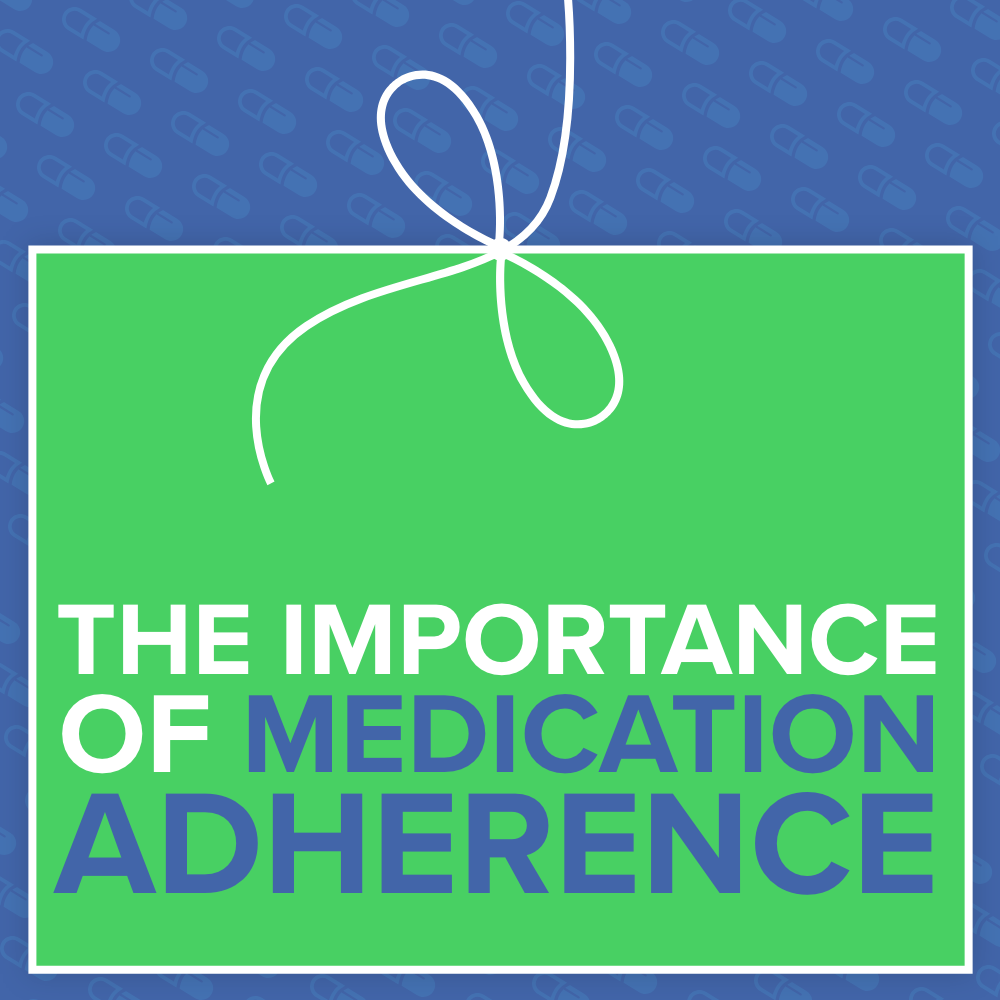
Here’s Why It’s Important To Take All of Your Medication
In the United States, a surprisingly large amount of patients who are prescribed long-term medication are not what is called, “medically adherent”. This means that a large number of individuals who are prescribed medication do not actually take what they are prescribed, either by not taking medications properly, or by not taking their medications at all. In fact, according to a 2014 study published in the Journal of the American Medical Association (JAMA), approximately 30%-50% of adults are, “not adherent to long-term medications…” This trend of medication non-adherence has large-scale effects in the healthcare field, both in economic and personal wellness terms.
Why it Matters
That same JAMA study also estimated that medication non-adherence led to an additional $100 billion in preventable medical costs every year. Other studies have put that number closer to as high as $289 billion a year; this accounts for roughly 3%-10% of total annual healthcare costs. That dollar amount doesn’t properly put into perspective the actual human cost of medication non-adherence–which leads to an estimated 275,689 deaths annually, and is the cause of roughly 10% of all hospitalizations. When pairing the economic strain that it puts on the healthcare system with the number of mortalities and hospitalizations that it causes, there’s no question that medication non-adherence is a problem that needs to be taken seriously.
How Does it Happen?
There are a number of reasons that have been given for medication non-adherence. In a 2014 Johns Hopkins survey of 10,000 patients, 3 of the most common reasons given for medication non-adherence, ranked from highest-to-lowest frequency were:
- Forgetfulness (24%)
- Perceived Side Effects (20%)
- Perception that Prescribed Drug Was Ineffective (14%)
So, How Can it Be Fixed?
Although many of these issues can seem hard to overcome, there are a number of strategies, outlined in the aforementioned Johns Hopkins study, to mitigate some of the human and economic costs of medication non-adherence:
- Education- Increasing the amount of education on the harmfulness of not taking medication is one strategy that targets all facets of the prescription process, with the aim being better education of medical personnel and patients. When it comes to educating medical personnel (physicians, pharmacists, nurses) the goal is to improve the ability for them to counsel and communicate with patients. Further training medical personnel to succinctly and effectively communicate to patients the very real risks of improperly using medications, not taking medications at the prescribed dosage or frequency, or not taking them at all, would have positive effects on creating a better culture of support and a more informed patient and medical staff pool. Educating both medical personnel and patients will ultimately help reduce the stigma surrounding prescribed drugs being ineffective and concerns about side-effects.
- Engaging in Social Support Systems- Getting friends and family members involved when it comes to maintaining a consistent schedule of medication adherence can be key. Reminders to take their medication from a patient’s social circle, or encouraging words (e.g., “I noticed you’ve been looking much better since you started taking drug x!”) can create a structure of positive reinforcement that may make a patient more likely to adhere to a behavior pattern consistent with medical adherence.
- Using Technology- There are a number of different technologies that could help in reducing medication non-adherence. On the more modern end, things like automated alerts and monitoring through an app are methods that could reduce the large number of people who simply forget to take their medications, or electronic prescription to increase the ease of medicine accessibility.
None of these strategies will totally eradicate medication non-adherence, but if used jointly it’s possible that the high numbers of individuals who don’t take their medications or take them infrequently could decrease substantially. This means fewer deaths and illnesses, fewer visits to the doctor annually, and in turn a decrease in the vast economic and human costs associated with patients not taking their medication properly. Improving medical adherence means a better, cheaper, and more effective healthcare system for everyone.
